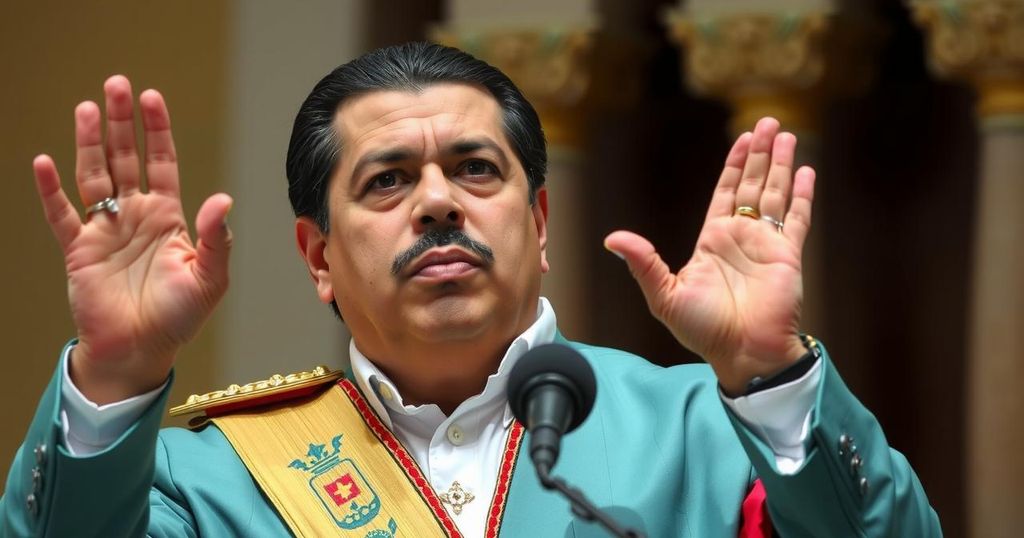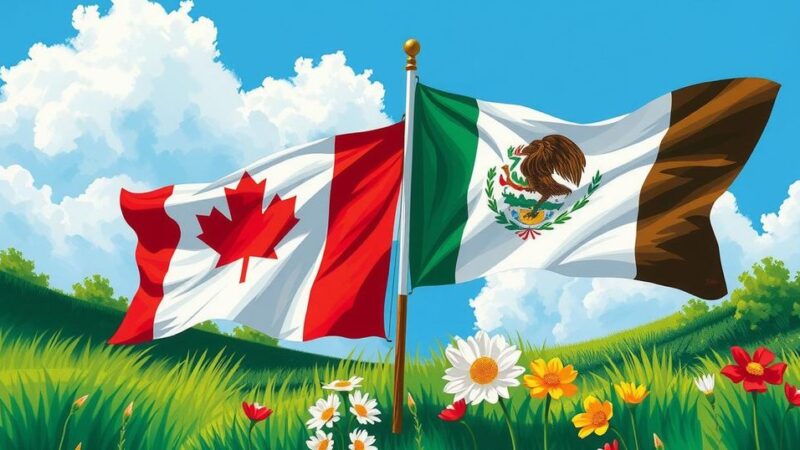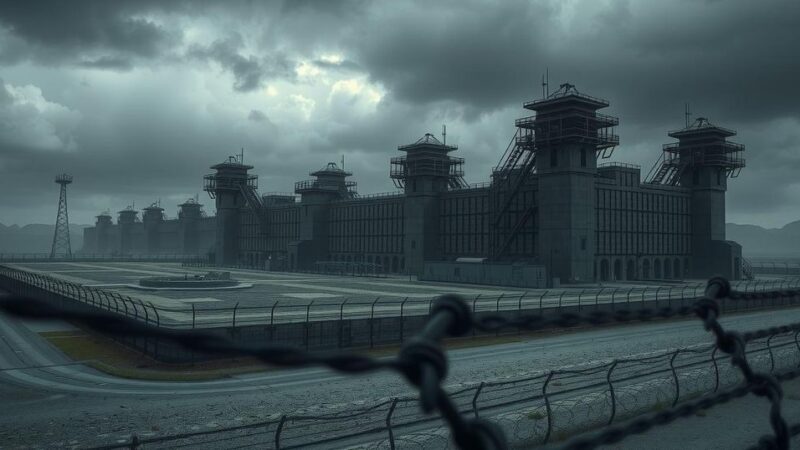Nicolás Maduro was sworn in for a third term as President of Venezuela amidst international controversy over the legitimacy of July’s elections. His inauguration follows the brief detention of opposition leader María Corina Machado, and the government continues to pursue opposition figures. The United Nations has voiced concerns over arbitrary arrests and intimidation tactics used against dissenters leading up to the protests.
Nicolás Maduro has officially begun a third term as President of Venezuela, following disputed elections held six months prior, which were labeled as lost by opposition members and the international community. During the inauguration ceremony held at parliament, President Maduro pledged that his third consecutive six-year term would usher in a “period of peace.” This event follows the controversial July elections, whose results have been widely rejected by various nations, including regional neighbors Brazil and Colombia, and which have been deemed illegitimate by opposition leaders and international observers.
Maduro’s swearing-in follows a day marked by tension, as prominent opposition leader María Corina Machado was momentarily detained during a protest rally. The government, through Information Minister Freddy Nanez, dismissed claims regarding her detention as mere “media distractions,” while her supporters alleged she was forcibly intercepted. In his inaugural address, Maduro vowed, “I swear that this new presidential term will be one of peace, prosperity, equality and new democracy. I swear it by history, I swear it on my life. I will keep my word.”
The official electoral results, declared by Venezuela’s National Electoral Council (CNE), claimed Maduro as the winner. This announcement has been rejected by many, including the United States, which recognizes Edmundo González as the rightful president-elect; González has since sought refuge in Spain. Increasingly, tensions have escalated within the nation, prompting an arrest warrant for González, with a reward of $100,000 offered for his capture. Following the elections, Machado has also faced government persecution, necessitating her retreat into hiding until her recent public appearance at the rally in Caracas.
Amidst these developments, the United Nations expressed deep concern regarding reports of arbitrary arrests and intimidation tactics employed against various opposition figures leading up to the protests. This has included the apprehension of Carlos Correa, a journalist advocating for press freedoms, who was reportedly abducted by unidentified assailants. The current political climate in Venezuela remains fraught with uncertainty, overshadowed by government repression and international criticism.
Venezuela has experienced escalating political turmoil, particularly since the contested elections in July, where Nicolás Maduro’s administration faced backlash and allegations of authoritarianism. The opposition, led by figures like María Corina Machado and Edmundo González, have sought international support against Maduro’s government. Despite claims of electoral victory from the government, many nations have responded by considering his presidency illegitimate, leading to tensions both domestically and internationally. The involvement of the United Nations signals the seriousness of the human rights concerns arising from the ongoing political unrest in the country.
In conclusion, Nicolás Maduro’s inauguration for a third presidential term has sparked significant controversy, marked by claims of electoral fraud and a tightening grip on dissent in Venezuela. The government’s oppressive actions against opposition leaders and NGOs signal ongoing strife within the political landscape. International response remains critical, as nations and organizations continue to challenge the legitimacy of Maduro’s presidency and advocate for human rights and democratic governance in Venezuela.
Original Source: www.bbc.com






